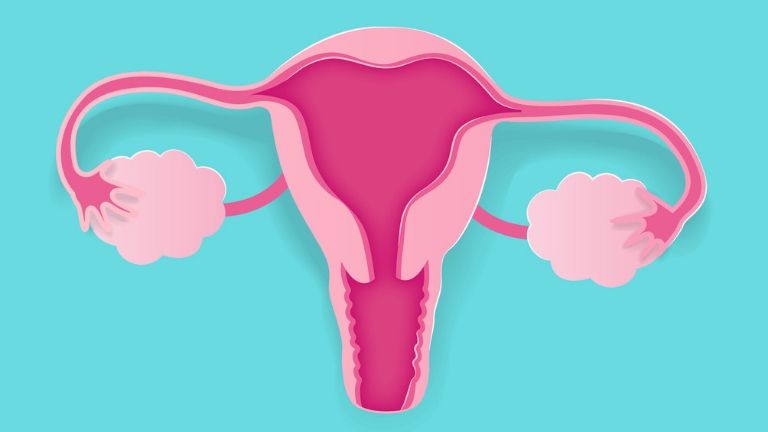The symptoms of PCOS can be devastating from excessive facial hair to unexplained weight gain. Healthista gynaecologist Dr Larisa Corda explains what can be done
From irregular periods to excessive facial hair and weight gain, patients I see with PCOS find the condition devastating because its symptoms seem to affect the entire body. And, it’s common.
Polycystic ovaries affect 1 in 5 women in the UK. The term is a bit of a misnomer in that the ovaries do not contain cysts but instead small follicles that contain multiple immature eggs.
Not all women with polycystic ovaries have the syndrome and not all women with polycystic ovarian syndrome (PCOS) have all the symptoms, which can vary.
Signs and symptoms
Common symptoms of PCOS include:
- Irregular periods or no periods at all
- Difficulty getting pregnant (because of irregular ovulation or failure to ovulate)
- Excessive hair growth (hirsutism)– usually on the face, chest, back or buttocks
- Weight gain
- Thinning hair and hair loss from the head
- Oily skin or acne
How PCOS is diagnosed
If you have any of the symptoms discussed above, go and see your GP who should order some blood tests and an ultrasound scan, to assess the ovaries. A diagnosis is made using a combination of symptoms, blood tests and ultrasound findings.
Fertility problems
PCOS accounts for one of the most common reasons behind female infertility because the hormonal imbalance that can result can mean a woman may not ovulate each month. As a result, an egg is not released and available to fertilise.
Metabolic problems
Having PCOS can increase your chances of developing other health problems in later life, especially those related to disturbances in metabolism.
For example, women with PCOS are at increased risk of developing type 2 diabetes because they’re more likely to develop insulin resistance, which occurs when blood sugar levels become difficult to control. They will also have an increased risk of high blood pressure and high cholesterol, which can lead to heart disease and stroke.
Overweight women are also more likely to develop sleep apnoea, a condition that causes interrupted breathing during sleep. In addition, women who have very irregular periods – which is a key symptom of PCODS – are at risk of developing endometrial or womb cancer, which can be minimized by being on the oral contraceptive pill or having a contraceptive coil inserted.
Pregnancy risks
If you have PCOS, you have a higher risk of pregnancy complications, such as high blood pressure (hypertension), pre-eclampsia, gestational diabetes and miscarriage.
These risks are all greater if you’re overweight, so by reducing weight, you can lower the chances of all these potential problems and improve the chance of pregnancy in the first instance.
How is PCOS treated?
Lifestyle changes
The great news is that by making certain adjustments to your lifestyle, the risk of any fertility and long term metabolic problems is greatly reduced.
In fact, weight loss of just 5% can increase the chances of spontaneous ovulation. Exercise and diet are important to help you to achieve this and we know that what is shown to help most is a diet low in sugar and rich in fruit and vegetables, healthy fats, lean proteins and low Glycemic Index (GI) carbohydrates such as quinoa, sweet potato and brown rice. Aim also eat a diet that’s as clean and unprocessed, organic and fresh as possible and to exercise about 20-30 mins each day.
Medications
Certain medications can be used to help improve regularity of periods and reduce the risk of uterine cancer. Most typically, this is the oral contraceptive pill.
However, for those women looking to conceive, other medication, such as clomiphene, which stimulates ovulation, can be used to improve the chance of ovulation and therefore pregnancy. Ultimately, IVF can be used to help.
In addition, metformin is often used to treat type 2 diabetes, but it can also lower insulin and blood sugar levels in women with PCOS. As well as stimulating ovulation, encouraging regular monthly periods and lowering the risk of miscarriage, metformin can also have other long-term health benefits, such as lowering high cholesterol levels and reducing the risk of heart disease.
Your doctor will decide on the best medication to put you on, by doing an overall assessment. Other medications can also be used to treat some of the other problems associated with PCOS, including:
- Weight-loss medication, such as orlistat, if you’re overweight.
- cholesterol-lowering medication (statins) if you have high levels of cholesterol in your blood.
- Acne treatments.
- Excessive hair growth treatments
Surgery
If PCOS does not respond to medication, sometimes something called laparoscopic ovarian drilling is done, which involves stimulating the ovaries with heat during keyhole surgery.
Dr Larisa Corda is a Consultant in Reproductive Medicine. She qualified from Imperial College London and her training has been both in the UK and Australia, seeing her gain an understanding and appreciation of gynaecological, obstetric and fertility issues across a wide international population.
She currently works for CREATE using natural and mild IVF techniques to assist conception where needed, is ITV This Morning’s and Channel Mum’s Fertility Expert, regularly appears and is quoted by the media, and has several research interests, some of which have been published.
She is also brand ambassador for My Lotus, a new ovulation device, and has launched her own website which offers guidance and support for all those wanting a natural empowering approach to their fertility. You can follow her on Instagram and Twitter.
More Healthista Content:
8 ways walking can help depression and anxiety – the psychotherapist’s guide
Why some vegans now eat eggs – the rise of the veggan
Vaginal discharge – the gyneacologist’s guide
When you get serious about weight loss, these are 3 things you need to give up
Like this article? Sign up to our newsletter to get more articles like this delivered straight to your inbox.
























































